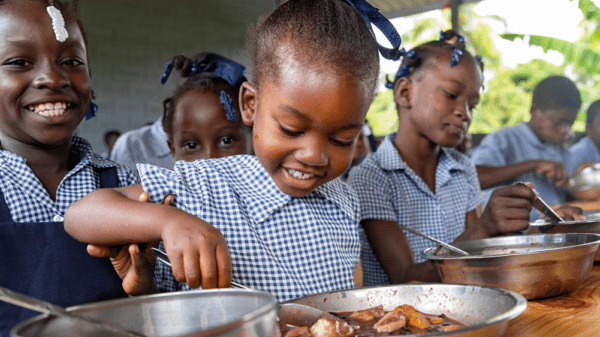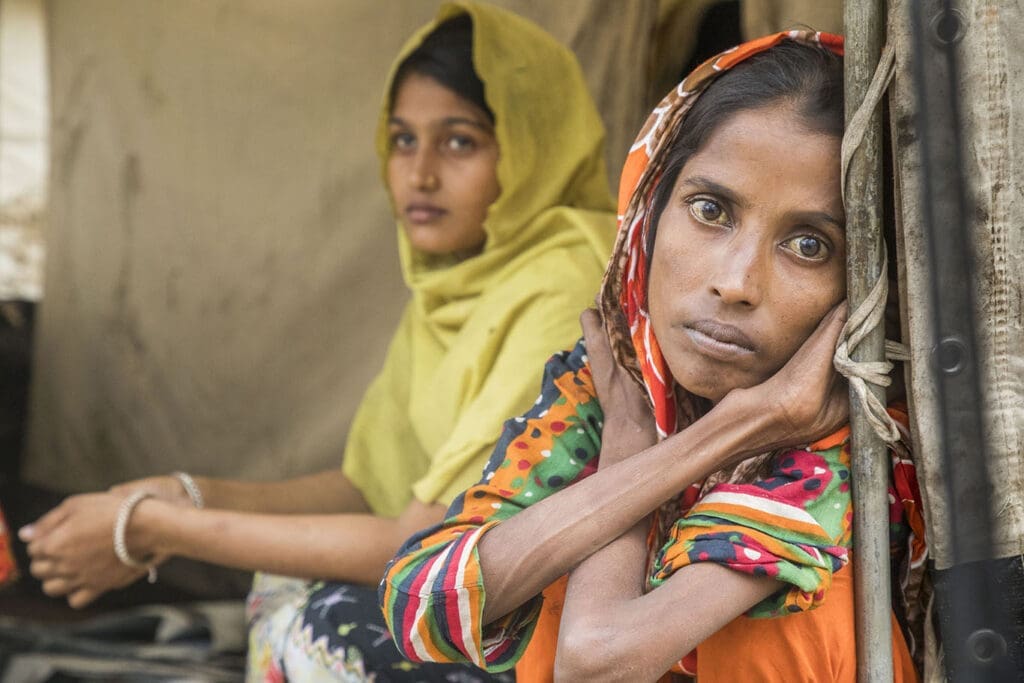
‘We Can Now Collect Food With Dignity’
March is women’s history month. What will history say about the hundreds of thousands of Rohingya women who’ve made the dangerous journey to Bangladesh to escape violence in Myanmar? Their stories are full of brutality and terror, but they are also full of determination and the will to survive.
A big part of that future includes the United Nations World Food Programme’s (WFP) electronic food vouchers. Thousands of families have received these vouchers in the form of a debit card that can be used to buy food from local stores. Whenever possible, the cards are given to women rather than men to empower them to make food decisions for their families.
This women’s history month, five of these women share their thoughts on the future.
Amina Khatun
Amina has been living in Bangladesh for one-and-a-half years. She has a husband and two children.
“I came to Bangladesh because of the extreme violence. Violence broke out — people were being beaten to death, driven away from their houses and couldn’t move around freely. So when we fell prey to such extreme threats, we had to escape.
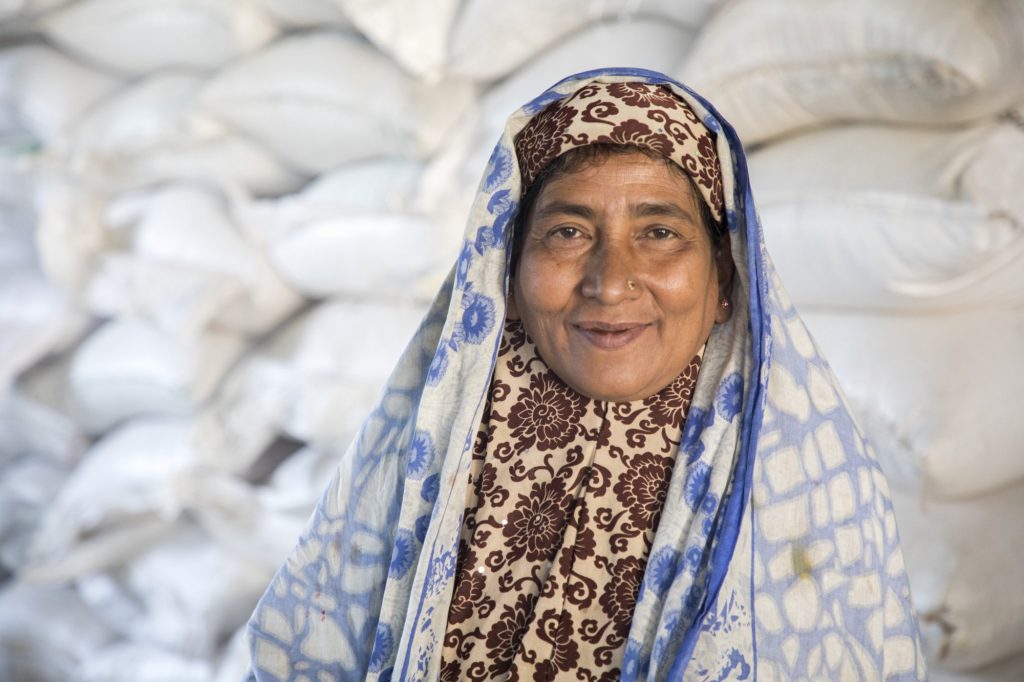
WFP/Saikat Mojumder
“When hostility began, none of us had the time to sit or eat. We all ran away when the firing started. In the beginning, we would search for food in different places, sometimes even begging. Later, we started collecting food from WFP.”
Amina now has one of WFP’s electronic food cards, and she can choose the food that she and her family need from a store. These cards increase dietary diversity and empower women to make the food choices for their families.
“This is truly beneficial for us. We can find most of the items here and we can secure our food supply in peace and eat in peace. We don’t need to hustle in a queue to collect food items. We can now collect food with dignity.
“Now people know me as a cardholder. I also know people working for WFP and they treat me with respect and care, and I really like it.”
Sayera Begum
Sayeraas been in Bangladesh for the last six months with eight family members. Her message for the world:
“We want justice. For all the violence we witnessed, all the lives lost, we want justice. Only then I will go back to Myanmar, or I am ready to die here.”
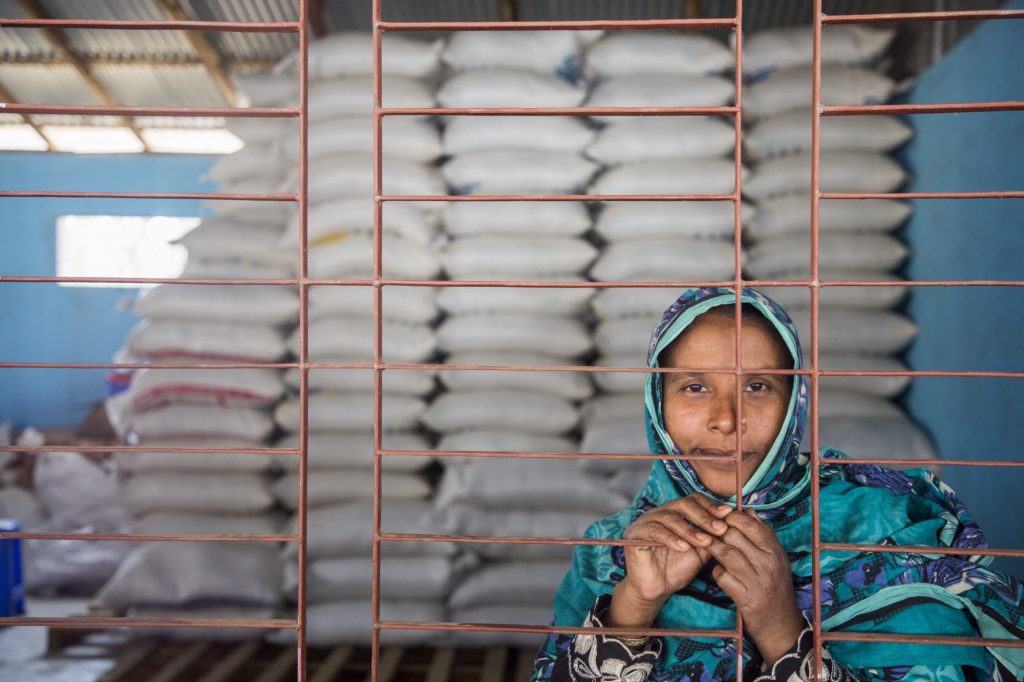
WFP/Saikat Mojumder
Fatema
Fatema and her four children have been living in Bangladesh for one year. While fleeing violence in Myanmar, she and her husband became separated from each other. She hasn’t been able to find him since.
“I ran for my life immediately. I only managed to take my children with me. I don’t know where my husband is. I barely escaped with other village members.”

Fatema received her first electronic food card from WFP three months ago. “I am very grateful to the people here. I got food from WFP, and everyone helped us. With the food card, we can buy our own food when we want and as per our choice. I am immensely grateful for this as it restored my dignity.
“I feel stronger. I can come and get only my preferred food items freely. I don’t have to worry about standing in a queue. I feel safer and more in control.”
Khodiza
Khodiza has been a refugee for more than thirty years, when her family fled violence in Myanmar and found safety in Bangladesh.
She has raised her family in a refugee camp; all six were born in Bangladesh.
“My father and my mother were killed in Myanmar. It was then I decided that there was nothing left for me there, so my husband and I left for Bangladesh. We shifted to this camp (Balukhali) only a year back when more people from Myanmar started arriving here.”
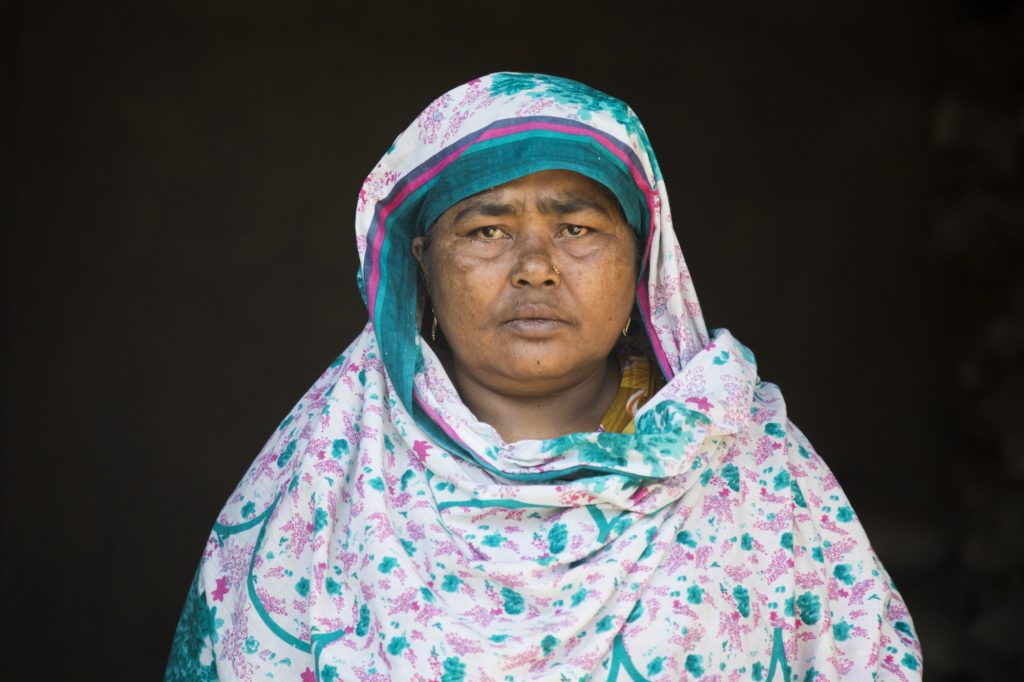
WFP/Saikat Mojumder
“In Myanmar we had a lot. An abundance of food, land, and we owned our own land, cattle…everything. But we had to leave everything behind.”
“When so many people from Myanmar started arriving here, I still had two of my sisters living there. Then, a few days back, my sisters stopped receiving my calls. Just two days ago, a neighbor received my call. They told me that my sisters were no more, both my sisters had died. I have lost my voice mourning for them; I miss them so much.”
“For a while, I used to stand in a queue for food supply. I am grateful for whatever people have given us. But the food I buy using this food card, it’s much more convenient. I can do my shopping in quiet, no chaos and I don’t have to stand in a line with of hundreds of people.
“Now I can decide what to buy today and what to buy for the next days. I can even buy my food supply on any day. I buy dried fish, garlic, fresh vegetables, spices, anything according to my needs.”
Nur Banu
Nur Banu is 45 years old and supporting her children as a single mother. “During the massacre in Myanmar, I lost my husband. We could not see who was around us, and we did not know what was going to happen, so we just ran away.”
Life is particularly hard for one of Nur’s daughters who is mentally ill. There is only rudimentary health care in the camp, so they must make do with what’s available and rely on the generosity of others.
“The firewood people give us is not enough. Life becomes really hard then. We are in a lot of pain but what can we do? We have to go on living our lives.”
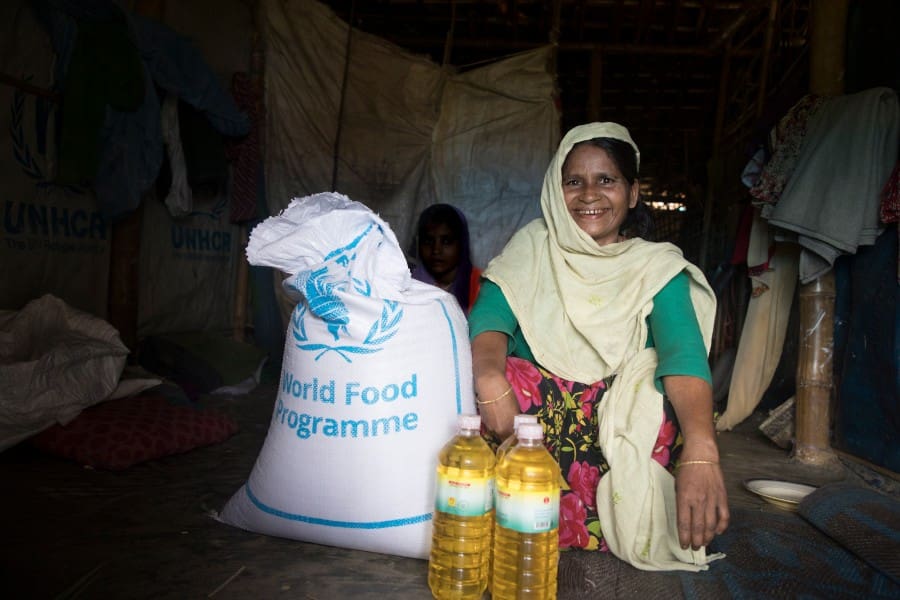
They receive rice, lentils and oil from WFP, but of course they miss the variety of foods they had in the former life.
“I want to buy betel leaf, betel nut and vegetables. We never have enough money to buy meat or fish. We also need to buy clothes. We depend on whatever pieces of clothing people send to us, torn or not, and we wear them.”
“I don’t have enough money, so if I want to eat two meals a day, I have to cook without salt. That’s how challenging life is here…we just don’t have any money.”
“We are getting the rice and have a full platter, but my biggest worry is about my mentally challenged daughter. She loses her calm and beats me. There is no soap. We are in a lot of trouble. We are just living this life somehow.”
Before the outbreak of violence in Myanmar in August 2017, WFP was providing food and support to 34,000 registered Rohingya refugees who had been in Bangladesh for as long as 30 years. Their camps have now grown into the largest in the world, with over 900,000 people. Learn more about WFP’s Rohingya response.


